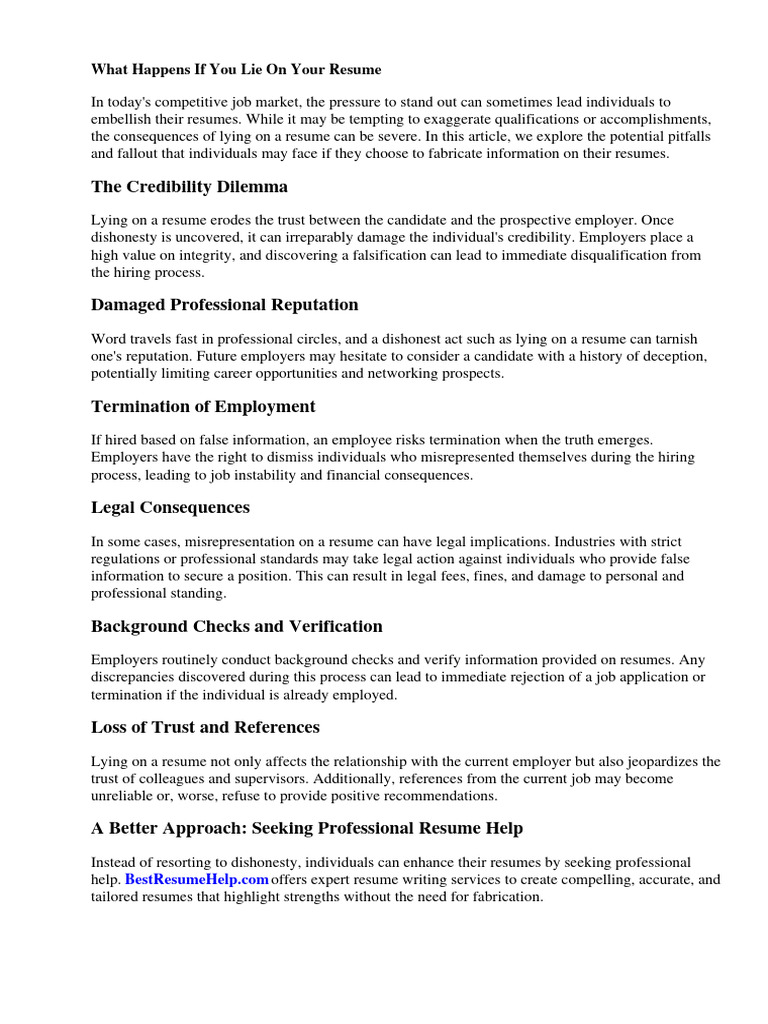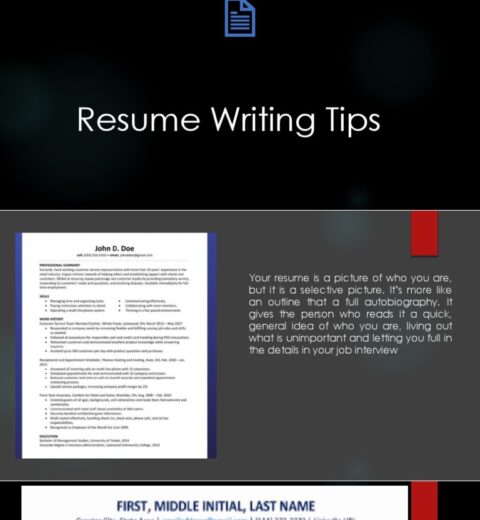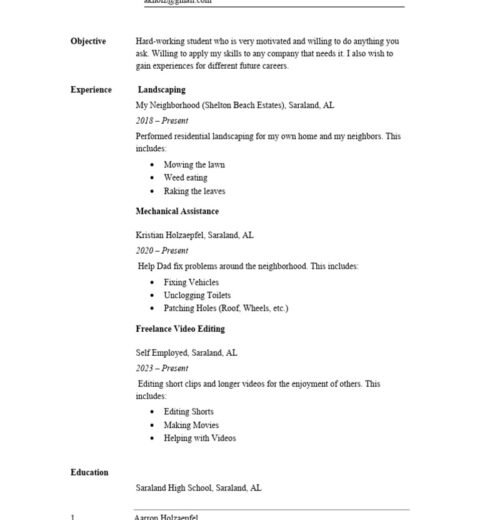The allure of embellishing one’s qualifications to secure a coveted position has long captivated the job-seeking populace. Many individuals ponder the question: “Can I lie on my resume?” While the temptation may arise from a desire to stand out in a competitive job market, the implications of such deceit are profound and multifaceted. This article delves into the potential consequences of resume falsification, elucidating the risks associated with this common practice, while also acknowledging the underlying psychological motives driving individuals to exaggerate their credentials.
To embark on this exploration, it is imperative to recognize the various forms of resume embellishment. Exaggerations may manifest in several ways, such as inflating job titles, overstating responsibilities, fabricating skills, or misrepresenting educational credentials. Each instance, regardless of its magnitude, harbors risks that can lead to dire professional ramifications.
One prominent repercussion of lying on a resume pertains to the potential for immediate disqualification from the hiring process. Employers often conduct background checks or consider reference verification as standard procedure. When discrepancies surface, candidates risk losing the opportunity before an interview even transpires. This arbitrary exclusion underscores the permanence of initial impressions and the significance of authenticity.
Beyond the immediate disqualification, the aftermath of being found out can instigate long-term consequences for one’s career trajectory. An individual caught in a web of deceit may find one fraudulent claim morphing into a chronic impediment. Many industries harbor implicit networks where reputations travel fast; negative connotations associated with dishonesty can tarnish one’s standing within a professional community. The notion of trust, once shattered, is arduous to reconstruct.
Employers, too, perceive lying on a resume as a breach of integrity. Integrity, a cornerstone of professional conduct, governs the relationship between employees and organizations. When trust is compromised, even if the individual possesses the necessary skills for the job, employers may opt to proceed with candidates who exhibit transparency over those who opted for deception.
Yet, the ramifications extend beyond external evaluations; the internal impact on job seekers is equally significant. The psychological weight of maintaining a façade can be burdensome, breeding anxiety and fear of discovery. The dishonesty becomes a ball and chain, rather than a feather in one’s cap. Furthermore, individuals may find themselves struggling to meet the expectations set by their inflated claims. This dissonance can result in feelings of inadequacy and self-doubt, eroding self-esteem and the very confidence one sought to cultivate through exaggeration.
Understanding why candidates resort to embellishment reveals the deeper societal pressures that contribute to this behavior. In an era characterized by fierce competition, job seekers often perceive inflated credentials as the only viable route to land interviews. The pervasive belief that “everyone else is doing it” fosters a culture of dishonesty where certain individuals rationalize their behavior by claiming it’s merely a means of leveling the playing field.
Moreover, societal norms often prioritize achievement over the authenticity of the means employed to attain such accomplishments. The emphasis placed on metrics—degrees, job titles, and years of experience—further perpetuates the cycle of deceit. Many candidates feel coerced to conform to these artificial benchmarks, leading them to fabricate narratives in the quest for employment. This reflects a systemic issue rather than an isolated individual failure.
While the act of lying on a resume may appear to offer a shortcut to success, the reality is far more complex. Individuals who reach higher echelons through deception often grapple with the fear of exposure and the uncertainty of maintaining their facade long-term. The risks involved are stark; the possibility of unearthing inconvenient truths ever-present in today’s digital age. With countless resources available for research and verification, the chance of being caught grows exponentially.
Moreover, some industries uphold particular ethical standards and cannot tolerate dishonesty. In fields such as healthcare, finance, and education, integrity is paramount. Professionals in these sectors are expected to adhere to a code of ethics that prohibits misrepresentation. Thus, introduce fraudulent claims into these domains, and one’s career could become irrevocably compromised, not just by professional repercussions but also by legal repercussions, including the potential for litigation.
In conclusion, pondering whether to lie on a resume necessitates a thorough consideration of the multifaceted repercussions. While the motivation may stem from a desire for competitiveness, the risks involved—from immediate disqualification to long-term reputational damage—outweigh the fleeting advantages. Authenticity proves far more valuable in the long run, fostering trust and integrity that resonate within professional circles. The path to success, while sometimes arduous, rests upon the bedrock of honesty. Embracing transparency may afford individuals the opportunity to present their true selves, ultimately leading to employment that aligns with their genuine capabilities and aspirations.




